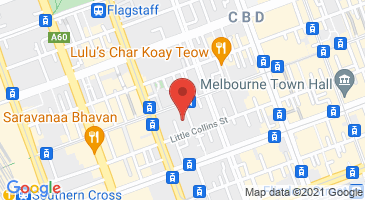Regulatory Decision Making: Back to Basics
Created for legal and non-legal regulatory decision makers, this unique program walks you through the guiding principles of correct regulatory decision making. Receive in-depth, practical tips & insights from an experienced panel of speakers on administration principles of bias and natural justice and how to collect and utilise evidence to support the best decision. You’ll come away with new tools and strategies on what it takes to ensure that your decisions are review proof. 223V27
Description
Attend and earn 4 CPD units including:
1 unit in Substantive Law
3 units in Professional Skills
This program is applicable to practitioners from all States & Territories
Chair: Dr Jamie Orchard, AHPRA General Counsel, AHPRA (Australia Health Practitioner Regulation Agency)
GUIDING PRINCIPLES OF REGULATORY DECISION MAKING
Professional Skills
9.00am to 10.00am A Practical Guide to Making Administrative Decisions
- What are the key questions to ask yourself when making administrative decisions?
- Where does the power come from to make that decision?
- Am I authorised to make that decision?
- Can I delegate the power to make that decision?
- What must I consider when making that decision?
- What evidence is that decision based on?
- What steps to take to ensure decisions are free from allegations of bias
- How to ensure decisions are transparent and conform to natural justice
- Practical examples
Presented by Krista Weymouth, Special Counsel, Weir Legal & Consulting
10.00am to 11.00am Administrative Law Principals of Bias and Natural Justice: Considerations for Boards and Tribunals
You will gain a general overview of the principals of bias and nature justice in decision making, with examples illustrating how decisions can so often come unstuck if these principals aren’t considered and adhered to.
Presented by Georgina Costello KC List G Barristers
11.00am to 11.15am Morning Tea
COLLECTING THE EVIDENCE TO SUPPORT THE DECISION
Professional Skills
11.15am to 12.15pm Taking the Initial Witness Statement and Record of Interview: Common Tips and Traps
- Witness Statements
- Records of Interview: as opposed to the initial witness statement
- Records of interview will often be the formal interview process in which allegations are put
- Written or audio-recorded?
- Natural justice
- Tips and traps for taking statements and interviews are often opposites
- Tips: Early preparation and planning; Format; Open-ended questions; Interpreters and Regulatory practice principles and legislative framework
- Traps: Poor preparation, lack of planning; Inconsistency in approach; Environment; distractions, discomfort; Telephone, video-link and Leading questions
Presented by Will Yates, Managing Principal Solicitor and Nicole Spicer, Managing Principal Solicitor, Victorian Government Solicitor’s Office
Professional Skills
12.15pm to 1.15pm Collecting the Evidence: What are you Trying to Prove?
- Evidence gathering
- Evidence processing
- Arguments about evidence
- Analysing evidence for admissibility
- Pulling it all together for trial
Presented by Alanna Mitchell, Assistant Victorian Government Solicitor, Victorian Government Solicitor's Office, and Will Yates, Managing Principal Solicitor, Victorian Government Solicitor’s Office
Presenters
Dr Jamie Orchard
Dr Jamie Orchard is the General Counsel of Ahpra and as such oversees the operations of the Ahpra in-house National Legal Practice. With lawyers in every state and territory that Practice handles all regulatory, civil and criminal litigation on behalf of Ahpra and National Health Practitioner Boards and provides advice on any regulatory, corporate, governance, FOI and privacy issues that arise. Jamie has extensive experience as a regulatory lawyer, having held senior executive level roles in Australia and internationally in regulators such as the Australian Securities and Investments Commission, the Dubai Financial Services Authority, the Qatar Financial Centre and the Australian Financial Ombudsman Service.
Krista Weymouth
Prior to joining Weir Legal and Consulting Krista was general counsel for a state government statutory authority. She has also had extensive experience advising local, State and Commonwealth regulators at a large law firm and at the Australian Government Solicitor. During her time in private practice Krista completed a number of secondments with regulators, including in the building and health space. Krista advises regulators across a range of sectors on operational activities including investigations, complaints management, registration and licensing, policies and procedures and compliance activity. Krista also works with regulators on risk-based policy and decision making
Alanna Mitchell
Alanna Mitchell leads the Royal Commissions branch at VGSO. At VGSO, Alanna has led the legal function in relation to the State's response to the Mental Health and Aged Care Royal Commissions. Alanna has a deep understanding of public sector governance and decision making processes and has participated in and chaired senior inter-departmental committees, working groups and panels across government over many years in relation to multiple major projects and initiatives. Alanna has also worked on the Royal Commissions into Trade Union Corruption, Disability, Black Saturday Bushfires and the current Inspector General for Emergency Management Inquiry into the 2019-20 Victorian Fire Season.
Will Yates
Will is a manager in the VGSO's Inquiries, Prosecutions and Administrative Law Branch. He specialises in public inquiries, litigation and public law matters.
Nicole Spicer
Nicole is Managing Principal Solicitor in the Inquiries, Prosecutions and Administrative Law branch at the Victorian Government Solicitors Office (VGSO) . She is currently involved in advising the State of Victoria in connection with its responses to the Yoo-Rrook Justice Commission and the Defence and Veteran Suicide Royal Commission. She has previously worked over an extended period of time in the field of criminal and quasi-criminal litigation. Prior to moving to the VGSO she was a supervising lawyer and mentor at Stary Norton Halphen Lawyers. She has been an LIV accredited specialist in criminal law since 2002, is co-chair of the Criminal Law Section, and sits on the specialisation advisory committee.
Venue
RACV City Club
Level 2, 501 Bourke St
Melbourne 3000
VIC
Australia

Parking information
Parking is not included in you registration. Here are some options below.
RACV City Club Car Park. Click here to view rates
Directions
Nearby Public Transport:
Tram Stations - William/Bourke St or Queen/Bourke St
Bus Interchange - Little Collins St or Supreme Court